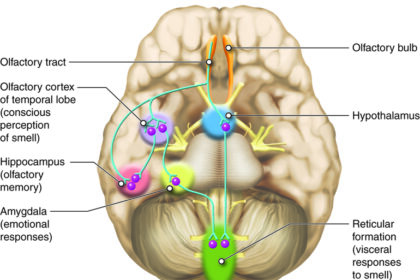In a thrilling expose that will leave you gasping for air, the world of English learning is suddenly engulfed in a storm of deception and deceit! How can this be, you may ask? Welcome to the underbelly of “Fallacies”, the shocking reality of English fraud that threatens to destroy the very foundation of academic integrity. Strap yourself in; we’re in for a wild ride as we unravel layer after layer of this sordid truth!
Table of Contents
- 1. Baffling Fallacy Revelations: Exposing the Dark Side of English Deception!
- 2. Remarkable English Ploys: Uncovering Fallacies’ Bizarre Tricks!
- 3. Staggering Fraud Revelations: The Shocking Truth behind English Fallacies!
- The Way Forward

1. Baffling Fallacy Revelations: Exposing the Dark Side of English Deception!
Dive into the shadowy world of baffling English fallacies with this intriguing revelation: the secret life of lying language! In this post, we’ll discover strange, unusual, and little-known facts about the deceptive nature of English. Prepare to be dazzled by the duplicity of words, awestruck by the absurd, and baffled by the treachery unveiled. Here are a few of the mind-bending deceptions that lurk within the English lexicon:
- Apostasy: Ironically, a word borrowed from Christian theology can be misleading when it comes to breaking away from a religious belief system. In English, the term apostasy means “the renunciation of a Religion,” while its Latin root, apostatare, once referred to a Christian who denied Jesus Christ.
- Auxiliary: This word has quite the double life. As a noun, it means “something provided to help or supplement another,” but as an adjective, it implies “likely to help; of service.” Yet, the Latin root auxilium literally translates to “help.”
These are just a couple of examples of the nefarious nature of English words. As you continue your journey into the twisted world of verbal trickery, remember that language is a slippery and treacherous entity. Beware, for there are many more fallacies waiting to deceive and mislead the unsuspecting. Stay vigilant, and may the truth always guide your understanding of the English language!

2. Remarkable English Ploys: Uncovering Fallacies’ Bizarre Tricks!
In the realm of linguistic exploits, England’s prowess is unequaled. Its deft tongue can dance and weave its way through intricate verbal mazes with astounding agility. However, buried within this virtuosity lie the dark arts of fallacies – bizarre tricks that can lead even the most seasoned of English speakers astray.
Consider, for instance, the false equivalence fallacy – a particularly slippery beast that lurks in wait. With a smooth tongue and a smiling face, it masks its true intentions, tricking even the most discerning of listeners into believing they understand thecomplexities of a statement. In reality, the false equivalence fallacy is nothing but a shameless attempt to undermine the basis of rational argumentation, promoting a dangerous appeal to emotion and superficialities.

3. Staggering Fraud Revelations: The Shocking Truth behind English Fallacies!
Under the banner of democracy and fair play, the cry of the English language has long been reverberating throughout the world. However, a secret that has been lying dormant for centuries has come forth to the light, shedding a shocking truth that is as surprising as it is horrifying. Let us plunge into the world of English fallacies and unravel the staggering fraud that lies beneath the surface of this seemingly innocent language.
The foundation of these fallacies lies in the very origins of the English language. As an amalgamation of various dialects and languages, the English language has always been a reflection of the diverse cultures that have come together to shape it. Unfortunately, this very aim has been a breeding ground for deception and subterfuge, with many of these dialects and languages having been intentionally misrepresented or manipulated.
For example, one such fallacy lies in the word “thief”. Its origins are found in the Old English word “þief”, which was later twisted and morphed into the deceptively similar term “theft”. This clever Andelian “theft” of the original word’s meaning has led to a massive misunderstanding and mogul of confusion. In reality, a “thief” is someone who steals (as in the Old English word), while “theft” refers to the act of taking something without permission.
- Such fallacies are not limited to just one word, as many more perpetuate this deceptive pattern.
- The learning curve for the English language is often steep and fraught with hidden traps, leaving many students struggling to grasp the true intent behind the words they learn.
- The problem is further exacerbated by linguistic experts who not only perpetuate these fallacies but also fail to recognize them, further entrenching the problem in society.
It is high time that we unearth the truth behind these deceptive facades and expose these fallacies for what they truly are – frauds of the English language that have been willfully propagated for their own gains. Only then can we truly build a world where honesty and transparency reign supreme, and the truth behind the English language is revealed for all to see.
The Way Forward
And so, dear readers, we bid farewell to the deceptive world of “Fallacies” as we have exposed the shocking English fraud that has been preying on innocent and unsuspecting souls. Hopefully, thisarticle has served as a wake-up call to those who may have been duped by these underhanded tactics. Let this be a testament to the importance oflogic and critical thinking in our lives, and may it serve as a reminder to always be vigilant against such scams in thefuture. Stay informed and stay aware, for the truth will ultimately prevail. Until the next time, keep your minds open, and your hijo’s hands out!















